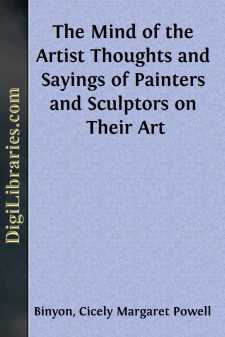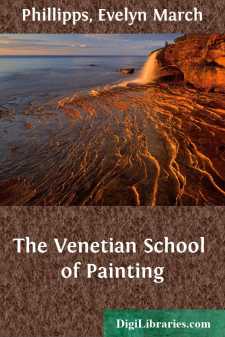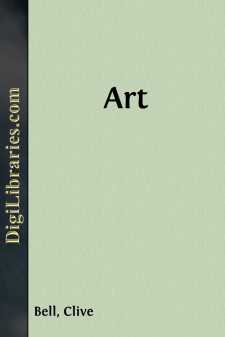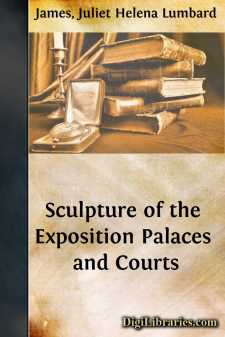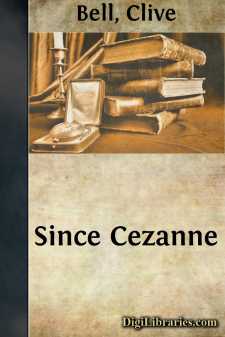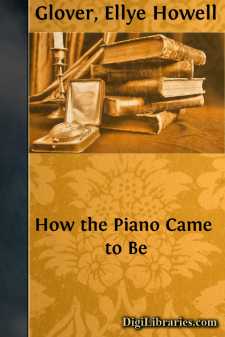Art
- African 1
- Asian 2
- Collecting 1
- Collections, Catalogs, Exhibitions 6
- Criticism 2
- European 8
- General 14
- History 11
- Middle Eastern 1
- Sculpture 4
Art Books
Sort by:
by:
Taha Atef
Are you ready to unleash your voice and build a podcast empire? "How to Make a Podcast with 1 Million Subscribers" is your ultimate roadmap to podcasting success. Whether you're a complete novice or have dabbled in audio content before, this comprehensive guide will take you from zero to podcast hero. Inside these pages, you'll discover: A foolproof, step by step process to launch your...
more...
THE MIND OF THE ARTIST An able painter by his power of penetration into the mysteries of his art is usually an able critic. Alfred Stevens. The Belgian painter, not the English sculptor. Art, like love, excludes all competition, and absorbs the man. Fuseli. A good painter has two chief objects to paint, namely, man, and the intention of his soul. The first is easy, the second difficult, because he has...
more...
CHAPTER I Venetian painting in its prime differs altogether in character from that of every other part of Italy. The Venetian is the most marked and recognisable of all the schools; its singularity is such that a novice in art can easily, in a miscellaneous collection, sort out the works belonging to it, and added to this unique character is the position it occupies in the domain of art. Venice alone...
more...
by:
Clive Bell
I THE AESTHETIC HYPOTHESIS It is improbable that more nonsense has been written about aesthetics than about anything else: the literature of the subject is not large enough for that. It is certain, however, that about no subject with which I am acquainted has so little been said that is at all to the purpose. The explanation is discoverable. He who would elaborate a plausible theory of aesthetics must...
more...
THIS exhibition has been arranged with a desire to meet the convenience of those who are interested in manifestations of the arts of different countries over which Islam held sway at one time or other in the past. An effort has been made to show under one roof representative examples of works produced at different epochs and stages of the civilizations referred to, so that they may be seen, and perhaps...
more...
Sculpture of the Exposition Palaces and Courts "The influence of sculpture is far reaching. The mind that loves this art and understands its language will more and more insist on a certain order and decorum in visual life. It opens an avenue for the expression of aesthetic enjoyment somewhere between poetry and music and akin to drama. - Arthur Hoeber The Fountain of Energy A. Stirling Calder,...
more...
by:
John Galsworthy
ABOUT CENSORSHIP Since, time and again, it has been proved, in this country of free institutions, that the great majority of our fellow-countrymen consider the only Censorship that now obtains amongst us, namely the Censorship of Plays, a bulwark for the preservation of their comfort and sensibility against the spiritual researches and speculations of bolder and too active spirits—it has become time...
more...
by:
Henry James
BLACK AND WHITE If there be nothing new under the sun there are some things a good deal less old than others. The illustration of books, and even more of magazines, may be said to have been born in our time, so far as variety and abundance are the signs of it; or born, at any rate, the comprehensive, ingenious, sympathetic spirit in which we conceive and practise it. If the centuries are ever arraigned...
more...
by:
Clive Bell
SINCE CÉZANNE With anyone who concludes that this preliminary essay is merely to justify the rather appetizing title of my book I shall be at no pains to quarrel. If privately I think it does more, publicly I shall not avow it. Historically and critically, I admit, the thing is as slight as a sketch contained in five-and-thirty pages must be, and certainly it adds nothing to what I have said, in the...
more...
How the PianoCame To Be From the dried sinews stretched across the shell of a dead tortoise to the concert-grand piano of the present day is a far flight. Yet to this primitive source, it is said, may be traced the evolution of the stringed instrument which reached its culmination in the piano. The latter has been aptly called "the household orchestra," and in tracing its origin one must go far...
more...



